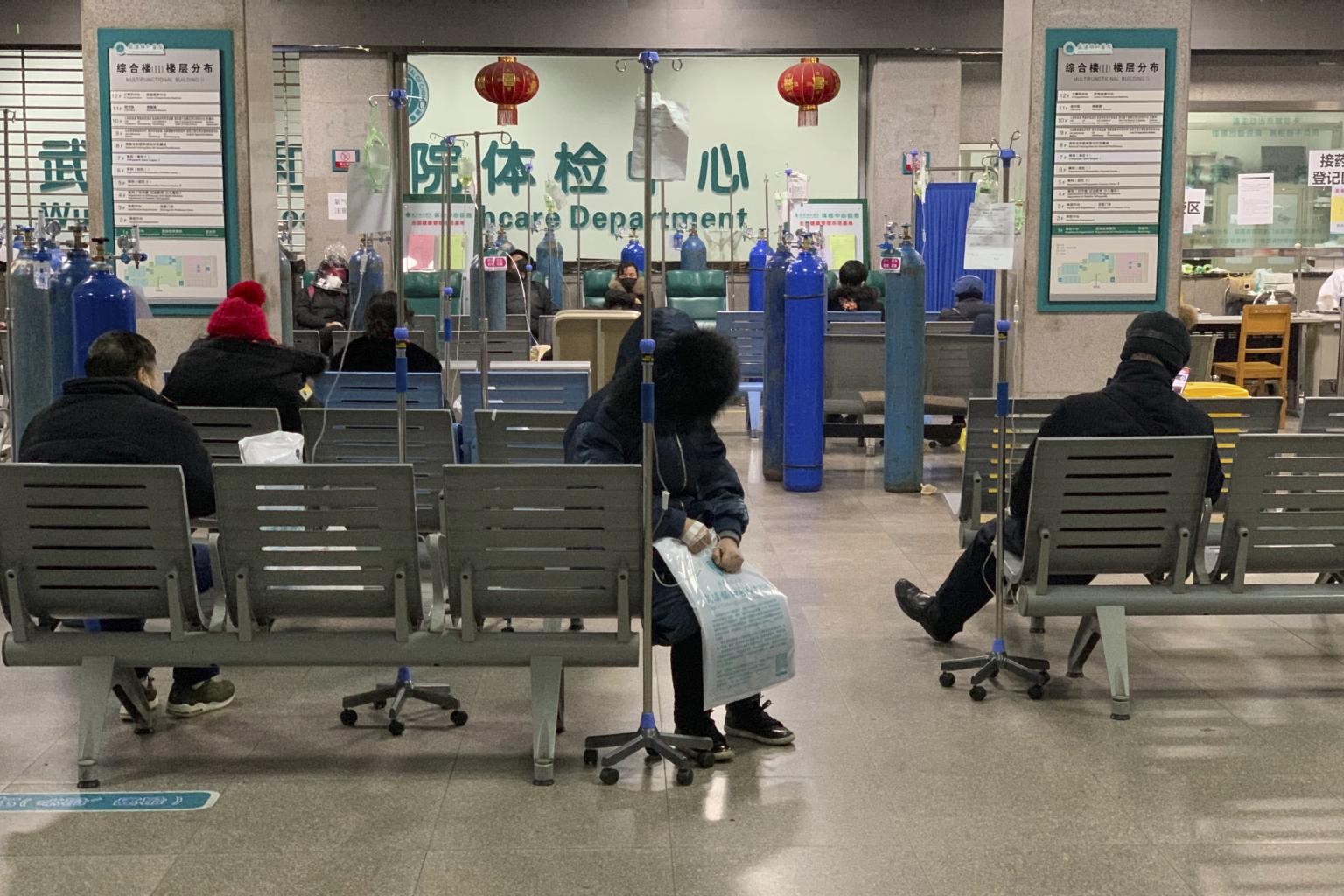Wuhan virus: Admissions and tests delayed as hospitals in China struggle to cope
Sign up now: Get insights on Asia's fast-moving developments

Union Hospital in Wuhan on Jan 28, 2020.
PHOTO: NYTIMES
WUHAN • After suffering from a fever and breathing problems for more than 15 days, Mr Xiao Shibing, a 51-year-old Wuhan resident, finally sought help at a hospital.
Despite the symptoms, he was not tested for the new coronavirus - a lapse suggesting that there may be far more cases than are being officially reported.
Instead, he was told he had a viral chest infection and he returned home. As he grew sicker, he visited three other hospitals, but they told him they did not have enough beds.
Like many of the thousands of Chinese patients, Mr Xiao is scrambling to get help from a healthcare system straining to serve even the basic needs of patients.
"It is like kicking a ball from here to there," said his wife Feng Xiu.
Mr Xiao, who was eventually hospitalised on Sunday - about a week after his initial attempt to get help - still has not been tested for the pneumonia-like virus.
Another Wuhan resident, Ms Yang Zhongyi, 53, was still waiting on Monday for a test, two weeks after she started to show signs of a fever, even though doctors privately told her family she almost certainly had been infected, said her son Zhang Changchun.
She has been unable to gain full-time admission to a hospital. She has been put on a drip in unquarantined areas at four separate hospitals in the city to treat her deteriorating lungs, her son said, while he is doing what he can to get her tested or admitted full time.
"My brother and I have been queueing at the hospital every day. We go at six and seven in the morning, and queue for the whole day, but we don't get any new answers," Mr Zhang said. "The doctors are all very frustrated too."
The Chinese government is relying on a medical system that is overburdened and overwhelmed, even in normal times. As the country does not have a functioning primary care system, most people flock to hospitals.
On an ordinary day, doctors see as many as 200 patients. In major cities such as Beijing and Shanghai, many people have to stand in line in the wee hours of the morning to secure appointments with doctors. During flu season, residents set up camp overnight with blankets in hospital corridors.
Those weaknesses are most pronounced in the poorer areas of China - like Wuhan, the epicentre of the coronavirus. Panicked residents are heading to hospitals if they have any sign of a cold or cough. Videos circulating online show doctors straining to handle the enormous workload and hospital corridors crowded with patients, some of whom appear to be dead.
Seven of the largest hospitals in Wuhan are now equipped with testing kits for the virus, which in theory deliver results within a day, a Hubei Provincial Centre for Disease Control and Prevention said.
But four people told Reuters they were refused tests because the process involved a complex reporting system including hospital, district and city health authorities, and disease control officials.
An official at the Wuhan Centre for Disease Prevention and Control told Reuters that to qualify for the test, patients must meet certain criteria, such as having symptoms of fever and pneumonia, and a surge in patients means it is "impossible to conduct the test right away".
Wuhan health authorities have a limit on tests, chiefly because of a shortage of testing kits, and are screening lists of patients before deciding who gets a test, which takes several hours, one hospital worker told Reuters.
"Some severely ill patients were left out from the final list for testing because they know they wouldn't be able to be treated," said the worker.
Hubei and Wuhan health authorities did not respond to Reuters' requests for comment.
Despite having dealt with the severe acute respiratory syndrome (Sars) outbreak nearly two decades ago, many hospitals in smaller cities are not fully prepared to deal with a major outbreak like the current virus. Wuhan hospitals have posted online appeals for medical equipment.
Last week, eight hospitals in Hubei province - where Wuhan is situated and where most of the cases have appeared - put out a call for N95 masks, goggles, surgical masks and surgical gowns.
Dr Huang Yanzhong, a senior fellow for global health at the Council on Foreign Relations, said China had invested a lot in building a robust public health infrastructure in the wake of Sars and that many hospitals were mostly well equipped to deal with infectious diseases.
"But they apparently didn't anticipate something so sudden, so acute, and so tremendous," he said.
Across China, the authorities are sealing off cities but the lockdown - affecting 56 million people - could make it difficult to get medical supplies to hospitals.
The local government has also pledged to build a new 1,000-bed hospital in Wuhan in 10 days, and vowed that another new 1,300-bed hospital would be ready by the middle of next month. During the Sars outbreak, a new hospital was built in Beijing in just a week.
NYTIMES, REUTERS


